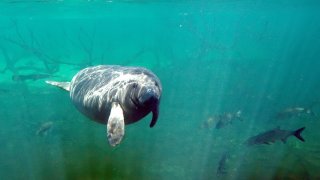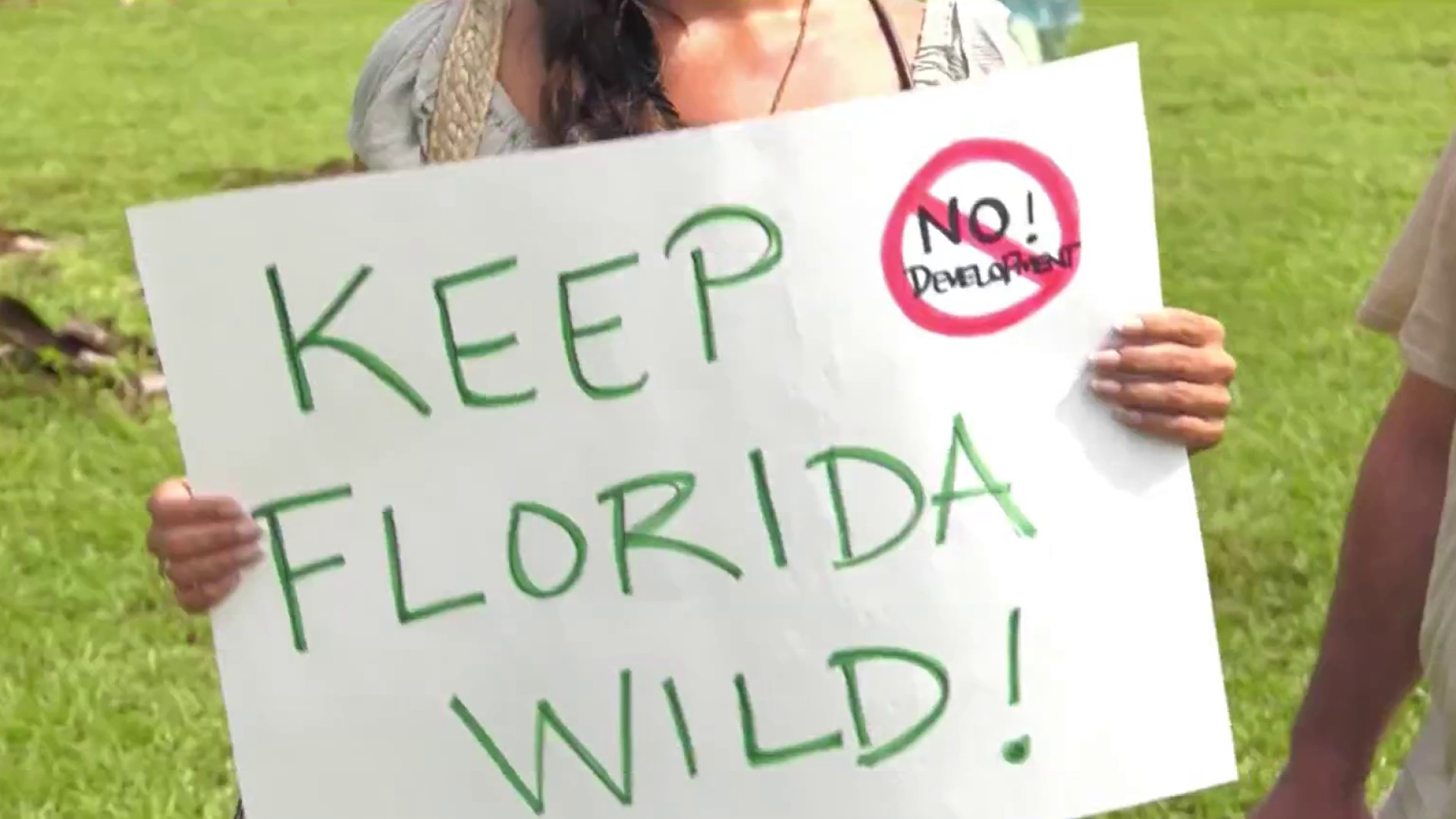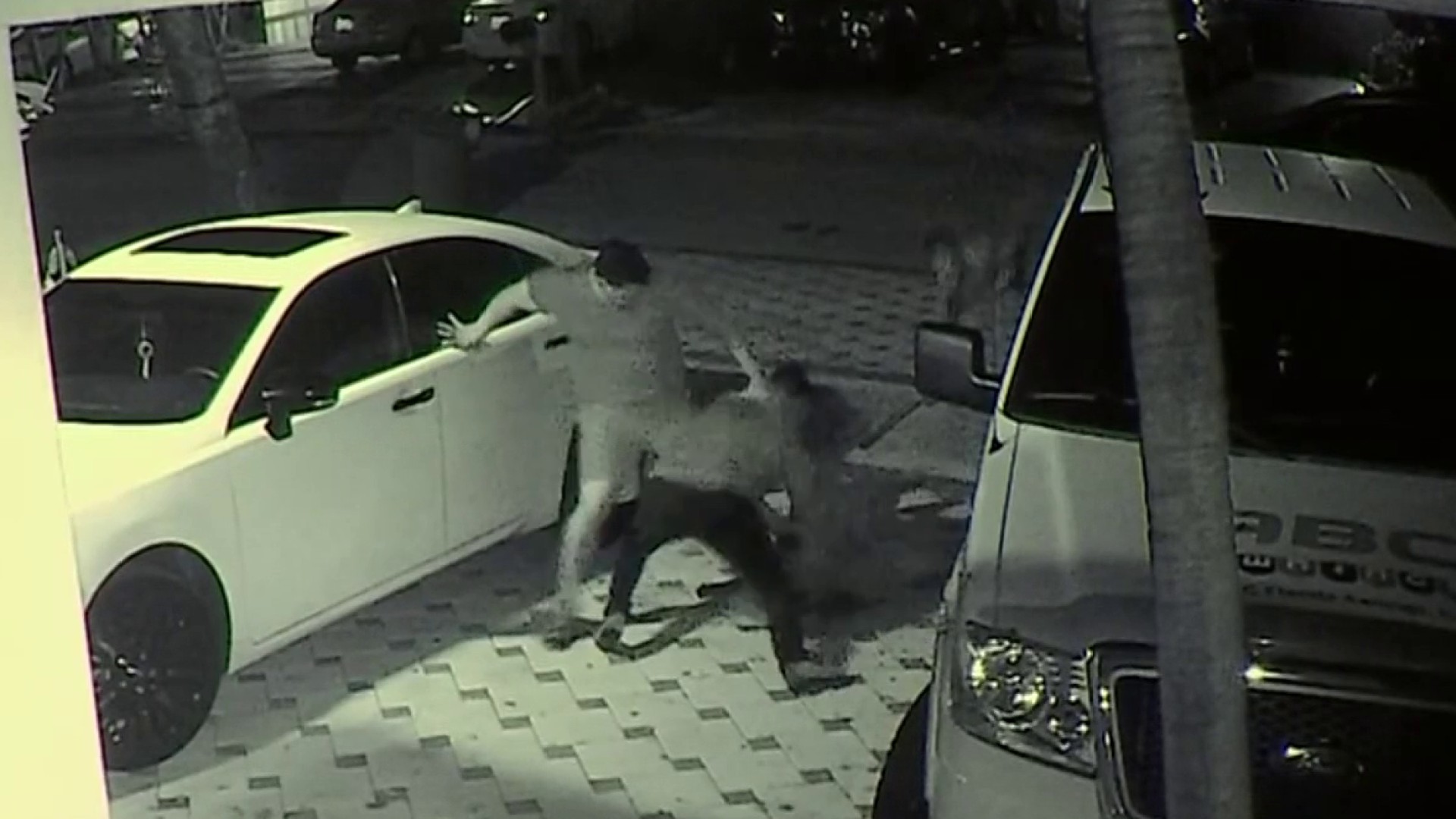
The Florida Fish & Wildlife Conservation Commission declared an "unusual mortality event" amongst manatees in 2020. Three years later, the endangered species is still dying off at an alarming rate.
Over 300 manatees died during the first half of 2023, the FWC reported.
'That's a pretty good chunk of the manatee population left remaining here in Florida," said Aarin-Conrad Allen, a manatee researcher at Florida International University.
Why is this happening?
The Hurricane season is on. Our meteorologists are ready. Sign up for the NBC 6 Weather newsletter to get the latest forecast in your inbox.
There are a number of contributing factors when it comes to the manatees' dwindling population.
Starvation
In previous years, starvation was the primary cause.
Local
Manatees eat seagrass, which is a plant that grows underwater. The amount of seagrass in the Indian River began to decline in 2011, Allen said.
"There's a good number of manatees using that waterway as transit along the coast," Allen explained. "The manatees started eating algae - they were emaciated."
Seagrass has steadily increased more recently, Allen said, but without regulations on water quality, it could eventually continue to decline.
The amount of seagrass plateaued due to environmental problems, such as poor water quality.
"The first problem was a lot of nutrients and runoff, like fertilizers and septic systems were leaching into the waters causing these harmful algal blooms," Allen said.
Human impact on the environment has worsened the quality of Florida's waters drastically over the past few years, with an uptick in red tide and other toxins.
Red tide
Unlike the seagrass decline, red tide kills manatees directly.
"It's basically a neurotoxin that causes manatees to more or less become lethargic, and if not treated, they'll drown," Allen said.
It's harmful to humans, too: red tide can cause burning or irritated eyes and rashes on the skin.
Red tide has been spotted numerous times along Florida's Gulf coast.
The FWC reported that 87 manatees died in Lee County during the first half of 2023 - more than any other county.
Lee County is located on the West Coast of Florida, and it's also home to "a ton" of manatees, Allen said.
Watercrafts
Florida has more registered boats than any other state.
Collisions with manatees have contributed to a significant portion of manatee deaths.
"This year they are seeing a higher mortality related to watercraft deaths in congruency with that unfortunate amount of manatees," Allen said.
Florida leads the nation in boating accidents and fatalities as well.
What's next?
As the manatee population declines, the entire ecosystem is affected, Allen explained.
"Manatees are an important part of ecosystems for seagrass," he said.
The water quality is "degraded" when manatees die off, Allen said.
When one animal in the food chain has a significant population change, every other animal in the food chain is affected in tandem, meaning that manatee die-off could affect Florida's seafood industry dramatically.
"The entire bottom of the food chain has changed in these areas, so going up the food chain it's impacting these animals as well," Allen said.
How can we help?
Regulating the environment is a key component in protecting Florida's manatees, as well as other marine life and in cleaning up the waters.
The amount of phosphates and nitrates in the waterways are making the water toxic and unhabitable for humans and marine animals alike.
Enforcing regulations that limit the amount of pesticide runoff, fertilizers, and raw sewage in the water is "one thing we can definitely work on," Allen explained.
As for the other culprits, watercrafts - speed zoning and safe boating practices are important.
"More officers on the water and more education for boaters," he said.
Lastly, the FWC is an important resource that people can use to help endangered manatees.
"They're the organization that's rescuing and recovering these manatees. So, if people see an injured manatee, it should be reported to the FWC hotline," Allen said.
The FWC's Wildlife Alert Hotline can be reached at 888-404-FWCC (3922).



